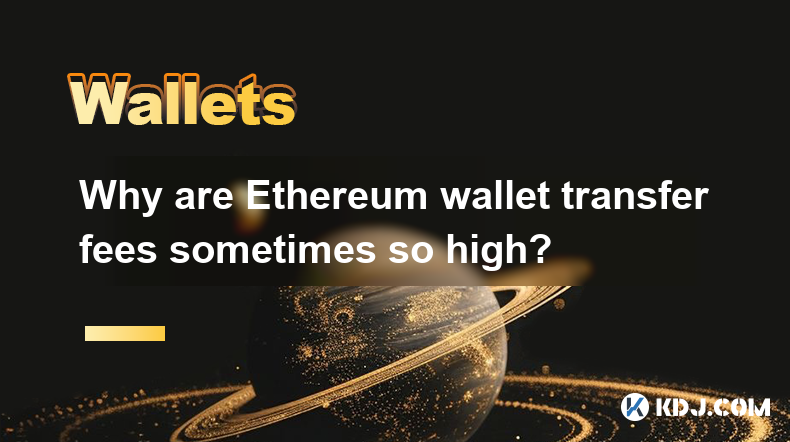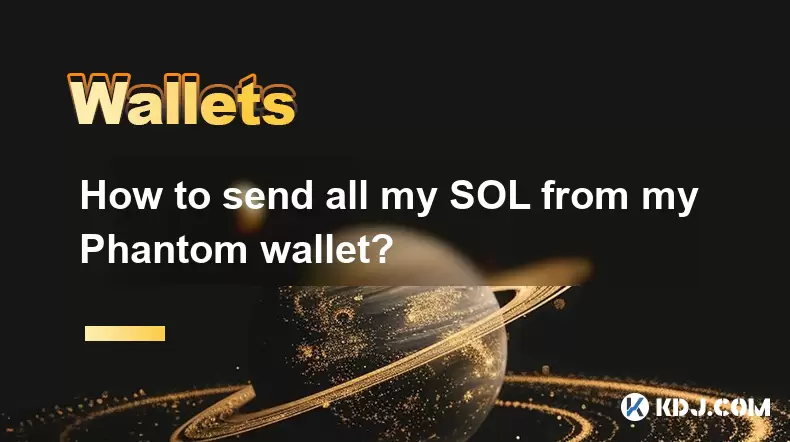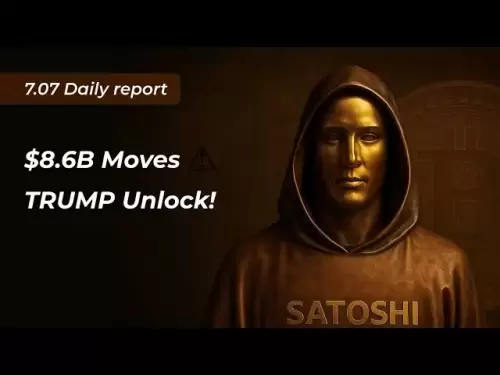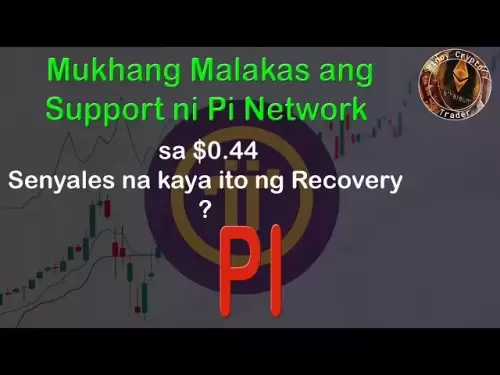-
 Bitcoin
Bitcoin $108,708.8110
0.60% -
 Ethereum
Ethereum $2,561.6057
1.91% -
 Tether USDt
Tether USDt $1.0001
-0.03% -
 XRP
XRP $2.2795
0.57% -
 BNB
BNB $662.2393
1.00% -
 Solana
Solana $153.1346
3.74% -
 USDC
USDC $1.0000
0.00% -
 TRON
TRON $0.2877
0.97% -
 Dogecoin
Dogecoin $0.1710
3.93% -
 Cardano
Cardano $0.5871
1.61% -
 Hyperliquid
Hyperliquid $39.6663
1.68% -
 Sui
Sui $2.9032
0.79% -
 Bitcoin Cash
Bitcoin Cash $496.1879
1.71% -
 Chainlink
Chainlink $13.5807
3.01% -
 UNUS SED LEO
UNUS SED LEO $9.0777
0.61% -
 Stellar
Stellar $0.2514
4.51% -
 Avalanche
Avalanche $18.1761
1.86% -
 Shiba Inu
Shiba Inu $0.0...01173
1.72% -
 Toncoin
Toncoin $2.8010
-4.23% -
 Hedera
Hedera $0.1594
3.21% -
 Litecoin
Litecoin $87.0257
-0.53% -
 Monero
Monero $319.1217
1.79% -
 Polkadot
Polkadot $3.3853
0.68% -
 Dai
Dai $0.9999
-0.01% -
 Ethena USDe
Ethena USDe $1.0003
0.02% -
 Bitget Token
Bitget Token $4.3420
-0.97% -
 Uniswap
Uniswap $7.3772
1.39% -
 Aave
Aave $286.6277
5.61% -
 Pepe
Pepe $0.0...09994
2.33% -
 Pi
Pi $0.4589
1.76%
Why are Ethereum wallet transfer fees sometimes so high?
High Ethereum transaction fees (gas fees) result from network congestion, complex transactions, ETH price, and timing. Minimizing fees involves choosing off-peak hours, using layer-2 solutions, batching transactions, and monitoring gas prices.
Mar 23, 2025 at 05:56 am

Why are Ethereum wallet transfer fees sometimes so high?
Ethereum transaction fees, commonly known as gas fees, are highly variable and can sometimes reach exorbitant levels. This volatility stems from a complex interplay of factors within the Ethereum network. Understanding these factors is key to managing transaction costs effectively.
One primary driver of high gas fees is network congestion. When many users are simultaneously trying to execute transactions, demand for network resources surges. This increased demand leads to a bidding war amongst users, driving up the price they are willing to pay to prioritize their transaction. Think of it like rush hour traffic – more cars mean slower speeds and potentially higher tolls.
The complexity of a transaction also influences its gas cost. More complex smart contract interactions, such as those involving decentralized applications (dApps), require more computational resources and consequently higher gas fees. A simple token transfer will always be cheaper than a complex DeFi interaction.
The price of ETH itself significantly impacts gas fees. Gas fees are denominated in Gwei, a smaller unit of ETH. When the price of ETH rises, the equivalent value of a Gwei-based gas fee also increases, leading to higher overall costs in fiat currency. This is a direct correlation – higher ETH price, higher dollar cost for the same gas fee.
Another crucial factor is the time of day or week. Transaction volume fluctuates throughout the day and week, mirroring general internet usage patterns. Peak hours generally see higher congestion and therefore higher gas fees. Strategic timing can help minimize these costs.
Finally, the specific gas price you set for your transaction plays a crucial role. While you can set a lower gas price, this increases the likelihood that your transaction will be delayed or even fail to process due to lack of miner prioritization. Setting a higher gas price ensures faster confirmation, but at a greater cost.
How can I minimize Ethereum gas fees?
There are several strategies you can employ to reduce your Ethereum transaction costs:
- Choose off-peak hours: Transactions submitted during periods of lower network activity typically incur lower gas fees. Experiment with different times to find the most cost-effective periods.
- Use a transaction accelerator: Some services and tools help optimize gas prices and transaction timing to minimize costs. However, be cautious and thoroughly research any such service before use.
- Batch transactions: Combining multiple transactions into a single batch can sometimes reduce the overall gas cost. This is particularly useful for interacting with multiple dApps or making several transfers at once.
- Utilize layer-2 scaling solutions: Layer-2 solutions like Polygon, Optimism, and Arbitrum process transactions off the main Ethereum chain, significantly reducing gas fees. These solutions provide a cheaper alternative while still leveraging the security of Ethereum.
- Monitor gas prices: Use gas fee tracking tools and websites to monitor current gas prices and predict optimal times to send transactions. This allows for informed decision-making and better cost management.
What are layer-2 scaling solutions and how do they reduce gas fees?
Layer-2 scaling solutions are technologies built on top of the Ethereum blockchain that process transactions off-chain. This reduces the load on the main Ethereum network, consequently lowering congestion and gas fees. They typically bundle multiple transactions into a single batch, which is then verified on the main chain, making the process far more efficient.
Popular examples include:
- Optimistic Rollups: These solutions process transactions off-chain and then submit a summarized version to the main chain for verification. They offer a balance between speed and security.
- ZK-Rollups: Zero-knowledge rollups utilize cryptographic proofs to verify transactions without revealing the transaction details. This results in even greater scalability and privacy.
Why are some transactions more expensive than others?
The cost of an Ethereum transaction is directly proportional to its computational complexity. Simple transactions, such as sending ETH from one wallet to another, require minimal computational resources and thus incur lower gas fees. Conversely, complex transactions involving smart contracts, particularly those with many interactions or large amounts of data, demand significantly more computational power, resulting in higher fees.
Can I choose how much I pay in gas fees?
While you can't directly control the overall gas price (which is determined by market forces and network congestion), you can control the amount of gas you are willing to pay. You set a gas limit (the maximum amount of gas you're willing to spend) and a gas price (how much you're willing to pay per unit of gas). If the transaction consumes less gas than your limit, you only pay for the gas used. However, if the transaction requires more gas than your limit, it will fail.
What is Gwei and how does it relate to gas fees?
Gwei is a unit of measurement for gas fees on the Ethereum network. One Gwei is equal to 0.000000001 ETH. Gas fees are expressed in Gwei per unit of gas, reflecting the price per computational unit. The total gas fee you pay is the product of the gas used by your transaction and the gas price you set in Gwei. Fluctuations in the price of ETH directly affect the fiat currency value of gas fees, even if the Gwei price remains stable.
Frequently Asked Questions:
Q: What happens if I set my gas price too low? A: Your transaction might be delayed significantly or even fail to be processed completely as miners prioritize transactions with higher gas prices.
Q: Is there a way to predict future gas fees? A: While perfectly predicting future gas fees is impossible, monitoring real-time gas price trackers and considering historical trends can offer reasonable estimations.
Q: Are there any alternatives to Ethereum with lower transaction fees? A: Yes, several alternative blockchains offer lower transaction fees, though they may have different levels of security, decentralization, and smart contract capabilities.
Q: How do I find the best gas price for my transaction? A: Utilize gas fee tracking websites and tools to see the current average gas price and adjust your bid accordingly. Higher gas prices guarantee faster confirmation.
Disclaimer:info@kdj.com
The information provided is not trading advice. kdj.com does not assume any responsibility for any investments made based on the information provided in this article. Cryptocurrencies are highly volatile and it is highly recommended that you invest with caution after thorough research!
If you believe that the content used on this website infringes your copyright, please contact us immediately (info@kdj.com) and we will delete it promptly.
- Ozak AI Presale: The AI Token Race to $1 and Beyond
- 2025-07-08 00:30:13
- Bitcoin Miners, AI Wars, and the US Learning Curve: A New York State of Mind
- 2025-07-08 00:30:13
- Arctic Pablo: The Meme Coin Melting Crypto in 2025?
- 2025-07-08 00:50:13
- Plume, SkyLink, and Real Yield: Bridging TRON to Real-World Assets
- 2025-07-08 00:50:13
- Bitcoin Whale's Mystery Move: Price Hike Incoming?
- 2025-07-08 00:55:12
- Bitcoin, Jon Atack, and El Salvador: A Crypto Conundrum
- 2025-07-07 23:15:12
Related knowledge

How to cancel a pending transaction in Phantom wallet?
Jul 03,2025 at 07:21pm
Understanding Pending Transactions in Phantom WalletA pending transaction in the Phantom wallet occurs when a user initiates a transfer or interaction with the Solana blockchain, but it hasn't yet been confirmed by the network. This can happen due to various reasons such as low transaction fees, network congestion, or incorrect gas settings. It's import...

How to see the estimated value of my tokens in Phantom wallet?
Jul 04,2025 at 12:21am
What is Phantom Wallet?Phantom wallet is one of the most popular cryptocurrency wallets designed for the Solana blockchain. It allows users to store, send, receive, and manage various tokens built on Solana, including SPL tokens and NFTs. The wallet offers a user-friendly interface, making it accessible for both beginners and advanced users in the crypt...

How to lock my Phantom wallet extension?
Jul 03,2025 at 11:14am
What Is the Phantom Wallet and Why Lock It?The Phantom wallet is a popular non-custodial cryptocurrency wallet designed for interacting with the Solana blockchain. Supporting both browser extensions and mobile apps, Phantom allows users to store, send, receive, and stake SOL tokens, as well as interact with decentralized applications (dApps). Securing y...

Does Phantom wallet offer two-factor authentication (2FA)?
Jul 03,2025 at 09:00am
Understanding Phantom Wallet and Its Security FeaturesPhantom wallet is a widely used non-custodial cryptocurrency wallet that supports the Solana blockchain. It allows users to store, send, receive, and interact with decentralized applications (dApps) seamlessly. As security is a top priority for any crypto wallet user, security features like two-facto...

How to send all my SOL from my Phantom wallet?
Jul 06,2025 at 10:00am
Preparing to Send SOL from Your Phantom WalletBefore initiating any transaction, it is crucial to ensure that your Phantom wallet is fully set up and connected to the correct network. Phantom supports multiple networks, but for sending SOL, you must be on the Solana blockchain. Confirm this by checking the network indicator in the top-right corner of th...

What is "rent" on Solana and how does it affect my Phantom wallet?
Jul 02,2025 at 08:35pm
Understanding 'Rent' on SolanaIn the context of Solana, the term 'rent' refers to a storage fee that users pay for maintaining data on the blockchain. Unlike Ethereum, where storage costs are paid once via gas fees during contract deployment, Solana implements a recurring cost model to ensure efficient usage of network resources. This means that any acc...

How to cancel a pending transaction in Phantom wallet?
Jul 03,2025 at 07:21pm
Understanding Pending Transactions in Phantom WalletA pending transaction in the Phantom wallet occurs when a user initiates a transfer or interaction with the Solana blockchain, but it hasn't yet been confirmed by the network. This can happen due to various reasons such as low transaction fees, network congestion, or incorrect gas settings. It's import...

How to see the estimated value of my tokens in Phantom wallet?
Jul 04,2025 at 12:21am
What is Phantom Wallet?Phantom wallet is one of the most popular cryptocurrency wallets designed for the Solana blockchain. It allows users to store, send, receive, and manage various tokens built on Solana, including SPL tokens and NFTs. The wallet offers a user-friendly interface, making it accessible for both beginners and advanced users in the crypt...

How to lock my Phantom wallet extension?
Jul 03,2025 at 11:14am
What Is the Phantom Wallet and Why Lock It?The Phantom wallet is a popular non-custodial cryptocurrency wallet designed for interacting with the Solana blockchain. Supporting both browser extensions and mobile apps, Phantom allows users to store, send, receive, and stake SOL tokens, as well as interact with decentralized applications (dApps). Securing y...

Does Phantom wallet offer two-factor authentication (2FA)?
Jul 03,2025 at 09:00am
Understanding Phantom Wallet and Its Security FeaturesPhantom wallet is a widely used non-custodial cryptocurrency wallet that supports the Solana blockchain. It allows users to store, send, receive, and interact with decentralized applications (dApps) seamlessly. As security is a top priority for any crypto wallet user, security features like two-facto...

How to send all my SOL from my Phantom wallet?
Jul 06,2025 at 10:00am
Preparing to Send SOL from Your Phantom WalletBefore initiating any transaction, it is crucial to ensure that your Phantom wallet is fully set up and connected to the correct network. Phantom supports multiple networks, but for sending SOL, you must be on the Solana blockchain. Confirm this by checking the network indicator in the top-right corner of th...

What is "rent" on Solana and how does it affect my Phantom wallet?
Jul 02,2025 at 08:35pm
Understanding 'Rent' on SolanaIn the context of Solana, the term 'rent' refers to a storage fee that users pay for maintaining data on the blockchain. Unlike Ethereum, where storage costs are paid once via gas fees during contract deployment, Solana implements a recurring cost model to ensure efficient usage of network resources. This means that any acc...
See all articles

























































































